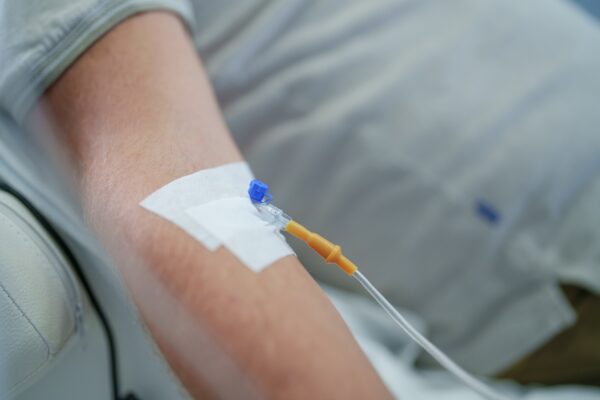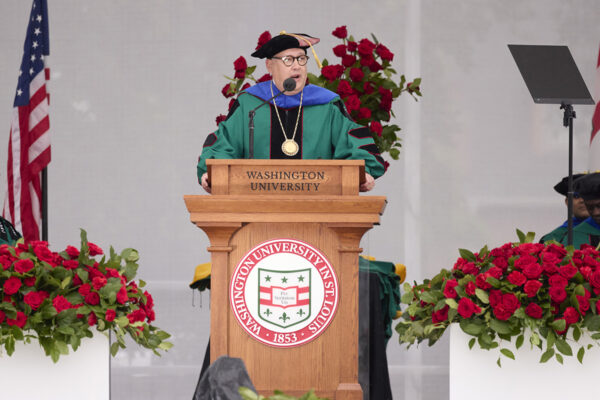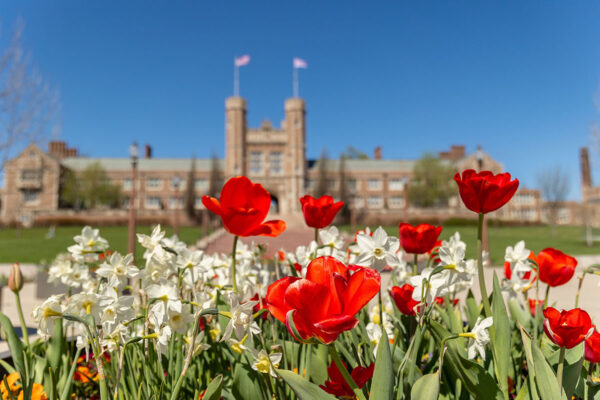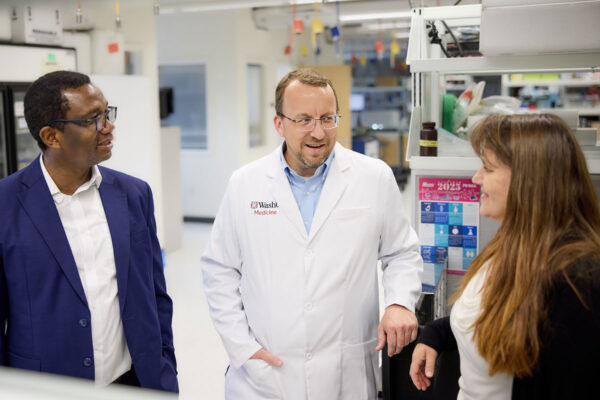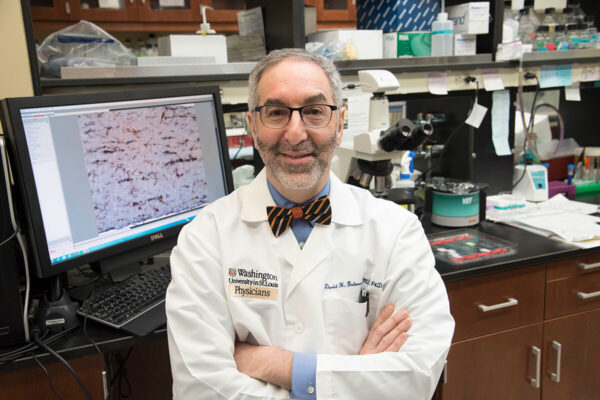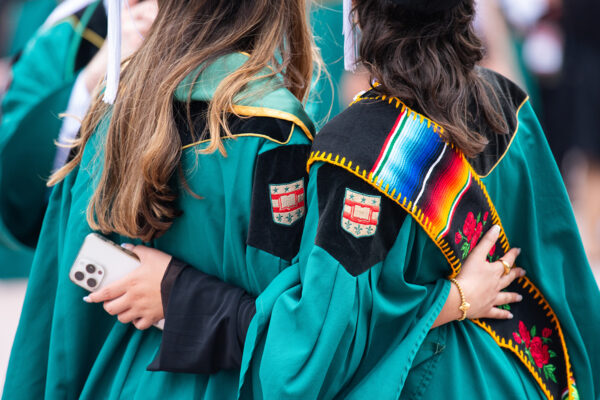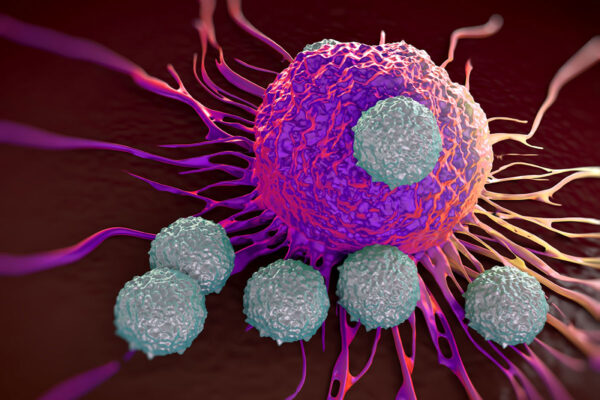Simone Biles’ 2025 Commencement address
Simone Biles gave her Commencement address to the Class of 2025 at Washington University in St. Louis during the May 12 Commencement ceremony on Francis Olympic Field.
Drug to slow Alzheimer’s well tolerated outside of clinical trial setting
In a recent study, WashU Medicine researchers found adverse events were rare and manageable among patients with very mild or mild Alzheimer’s disease who received infusions of a next-generation Alzheimer’s medication.
Chancellor Martin’s message to the Class of 2025
Chancellor Andrew D. Martin delivered his message to the Class of 2025 at Washington University in St. Louis during the May 12 Commencement ceremony on Francis Olympic Field.
Women’s Society presents leadership awards, scholarship
The Women’s Society of Washington University presented the Harriet K. Switzer Leadership Award and the Elizabeth Gray Danforth Scholarship to four exceptional students during its annual membership meeting this spring.
A faster route to eliminating parasitic infection endemic to Africa
A small clinical trial, led by researchers at WashU Medicine, has found that moxidectin, a new medicine for river blindness, also works for lymphatic filariasis, another tropical disease.
Understanding genetic factors behind a pediatric brain tumor
Researchers at WashU Medicine conducted a study to understand the genetic factors behind a pediatric brain tumor. Their findings could lead to new targeted therapies.
Speakers planned for schools’ Commencement celebrations
Several distinguished speakers, faculty members and student leaders will take part in Commencement recognition ceremonies for Class of 2025 graduates and their families and guests May 9-12 at WashU.
Immunotherapy improves survival of patients with locally advanced head and neck cancer
An international clinical trial co-led by WashU Medicine found that the immunotherapy drug pembrolizumab added to standard-of-care therapy improved survival for patients with locally advanced head and neck cancer. Pembrolizumab helps the patient’s own immune cells attack and kill tumor cells.
Class Acts: Justin Xu
Graduating senior Justin Xu, in Arts & Sciences, is clear about two things: his passion for community service and his pursuit of a medical career. If his leadership at WashU is any indication, he will achieve both goals and much more.
Eight university members receive Newman Exploration Travel Awards
WashU Libraries awarded eight recipients, including undergraduate and graduate students, faculty and staff members, Newman Exploration Travel Fund Awards. The NEXT Award program is intended to support students, faculty and staff who wish to explore the world.
View More Stories

